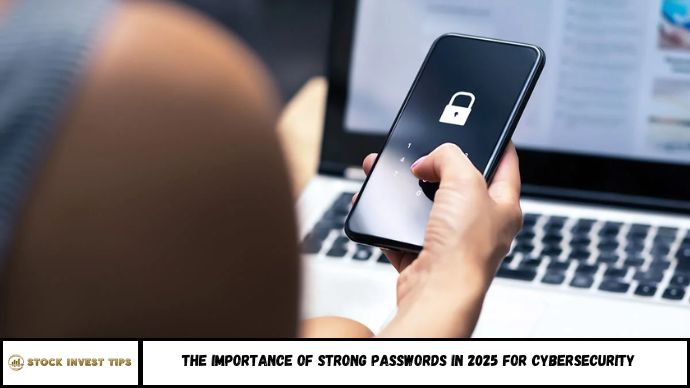The Importance of Strong Passwords in 2025 for Cybersecurity Strong passwords in 2025 are more crucial than ever as cyber threats grow more advanced. With AI-driven attacks and data breaches on the rise, weak or reused passwords pose serious risks to both individuals and organizations. This article explains why strong password habits matter now more than ever, shares current statistics, and offers clear, practical tips to help you strengthen your digital defenses.
In 2025, strong passwords remain a critical line of defense against cyberattacks—despite emerging technologies like passkeys. While some platforms now support passkeys to simplify and secure logins with built-in Multi-Factor Authentication (MFA), most online accounts still rely on traditional passwords during setup or as a fallback.
Passwords have long been the backbone of digital security, and even with evolving authentication methods, they continue to play a vital role in protecting sensitive information.
Are Your Passwords Ready for Today’s Cyber Threats?
In February 2025, a major healthcare provider experienced a data breach that exposed over 2.4 million patient records—all due to a reused password by a single employee.
This real-world example highlights a simple but powerful truth: your password is your first line of defense.
In today’s digital age, attackers use sophisticated tools like AI-based brute-force programs and credential stuffing to break into accounts. With the average person managing over 100 accounts, the risk multiplies with every weak or reused password.
This article will help you understand:
- Why strong passwords are critical in 2025
- The risks of weak passwords
- What makes a password truly strong
- Best practices for password creation and management
- Tools and strategies to keep your data safe
Why Password Security Matters More Than Ever in 2025
Cybercrime Is on the Rise
According to Cybersecurity Ventures, the global cost of cybercrime is expected to reach $10.5 trillion USD annually by 2025. Weak passwords remain one of the most common vulnerabilities.
AI Is Empowering Hackers
Modern cyberattacks use AI to guess passwords faster. A simple 8-character password with only lowercase letters can be cracked in less than one second.
Multi-Account Use Increases Exposure
Using the same password across multiple platforms creates a domino effect. One breach can compromise dozens of accounts.
What Makes a Strong Password in 2025?
To outsmart today’s hacking tools, passwords need to follow these modern rules:
1. Length Is Strength
- Aim for at least 12–16 characters
- Longer passwords are exponentially harder to crack
2. Use Complexity and Variety
- Combine uppercase and lowercase letters
- Include numbers and special characters
- Avoid dictionary words and predictable sequences
3. Avoid Personal Information
- Don’t use birthdays, names, or favorite bands
- Cybercriminals often gather this info from social media
Best Practices to Manage Passwords Effectively
1. Use a Password Manager
Tools like 1Password, Bitwarden, or LastPass store and encrypt passwords securely, so you don’t have to memorize them all.
2. Enable Multi-Factor Authentication (MFA)
Even if a password is compromised, MFA adds a second verification step.
3. Regularly Update Passwords
Set reminders to change passwords for critical accounts every 3–6 months.
4. Never Reuse Passwords
Each account should have a unique password to prevent chain-reaction breaches.
5. Watch for Phishing Attempts
A strong password won’t help if you give it away. Always verify suspicious messages or links.
Password Mistakes You Must Avoid
- Writing passwords on sticky notes
- Storing passwords in browser autofill without encryption
- Using “Password123” or “qwerty”
- Ignoring MFA when available
FAQs
1. What is a strong password in 2025?
A password that’s long (12+ characters), complex, and unique for each account.
2. How often should I change my passwords?
Update critical passwords every 3–6 months, especially for banking and email.
3. Are password managers safe to use?
Yes, reputable password managers use encryption to protect your data.
4. Can I use passphrases instead of complex passwords?
Yes! Long, memorable passphrases like “BlueTiger$Climbs-High2025” are both strong and easier to remember.
5. Why is MFA important even with a strong password?
MFA adds an extra layer of security, making it harder for hackers to access your account even if the password is stolen.
6. What should I do after a data breach?
Immediately change your passwords, enable MFA, and check for unauthorized activity.
Conclusion
As digital threats evolve, so must your defenses. A strong password is no longer optional—it’s essential. Whether you’re protecting personal emails or managing business systems, poor password habits can cost you everything.
Take action today:
- Review and strengthen your passwords
- Set up a trusted password manager
- Enable multi-factor authentication
Stay safe, stay smart, and lock down your digital world.

